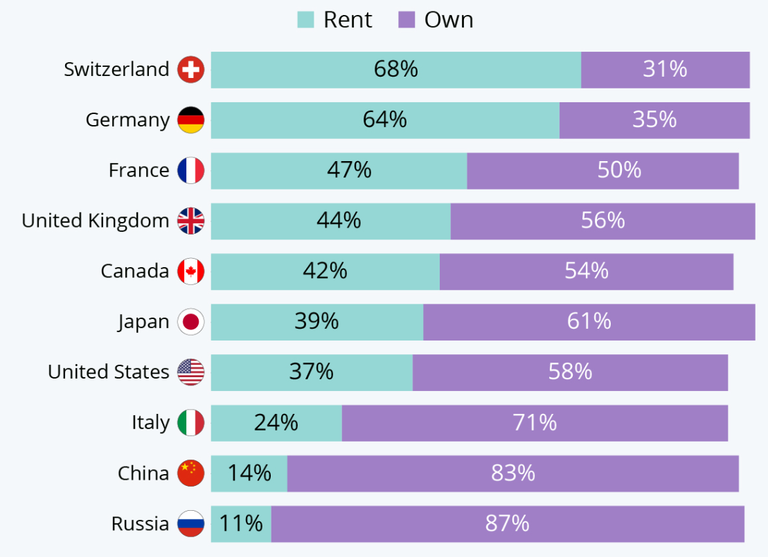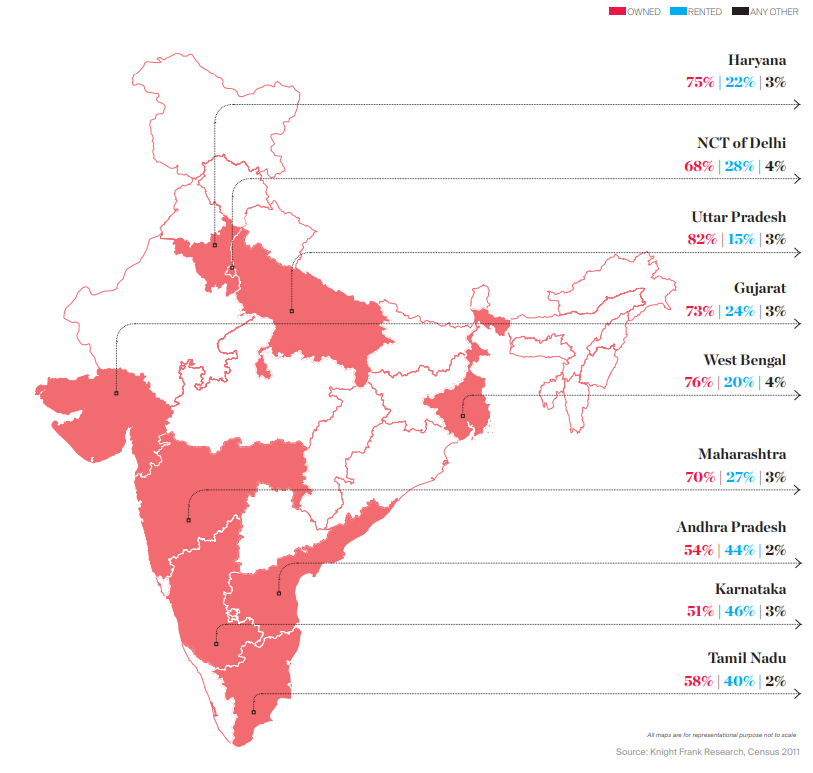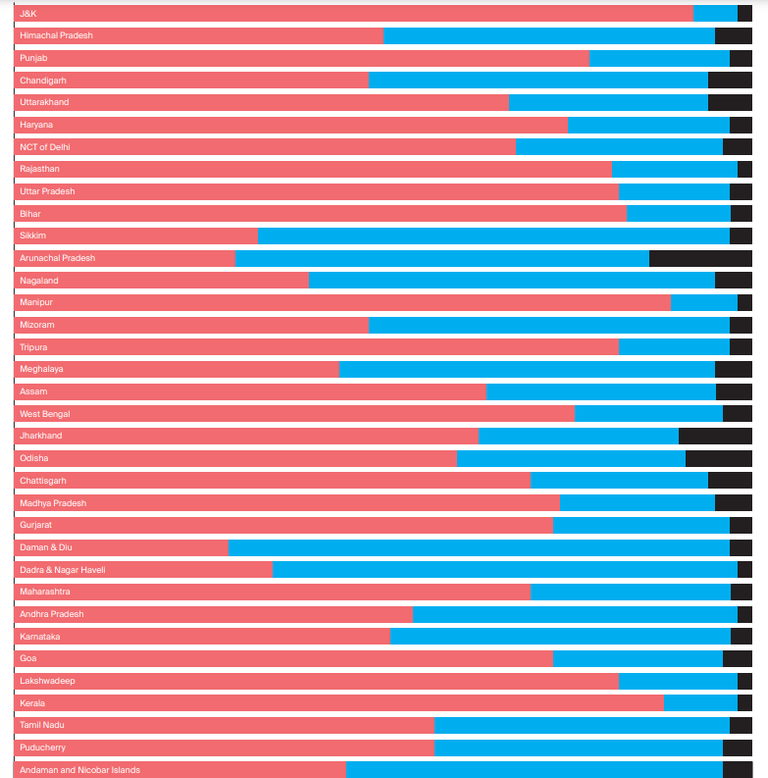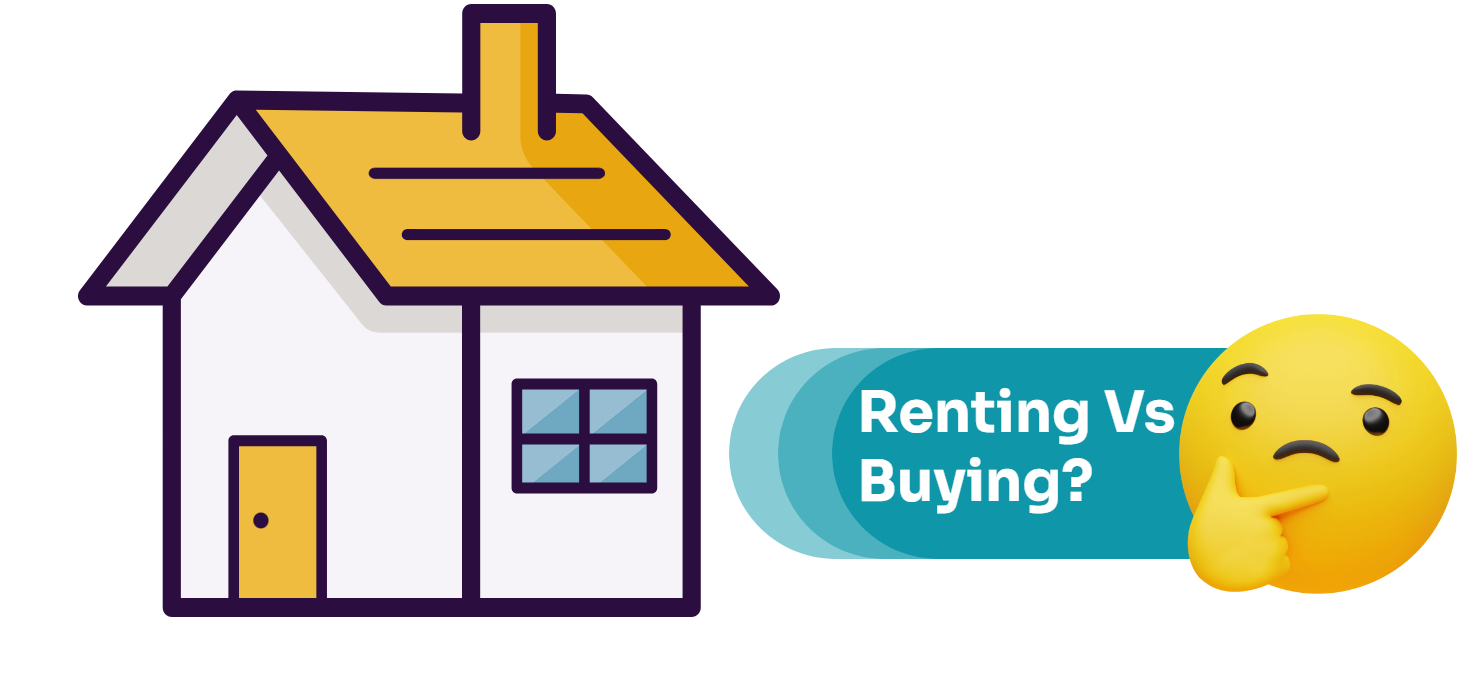
Renting vs Buying A House: Which One Is Better & Why?
Before I could analyze which one is better, I am certainly restricted by the boundary of affordability(even if it is about renting) on the one hand and the requirements (immediate and long term) on the other hand.
I am sure the majority of the world has this struggle, and the rest of the world has a dilemma. Dilemma can not start until you overcome the struggle.
Therefore if I could count my experience to pen down which one is better than I would always say owning a house, because that is always a dream to come true(maiden).
But having spent 4 years in rented accommodation and still counting. I would put forth what I feel as a tenant and what many of us do really aspire to in our life in the context of owning a house. Of course, it will be more nuanced with your profession, nature of the job, financial capability and so many things.
Rented Accommodation
(i) A sense of dependency
I have been staying in rented accommodation for 4 years and I can say regardless of how good/bad the owner is, it's always felt like a burden for me, because you dont have that absolute degree of freedom, after all you are just a tenant and you are restricted by the set of rules.
Notwithstanding honoring the rent contract in all forms/aspects, it always creates a sense of dependency (for me personally what I experienced), and I would always prefer to buy a house for me wherever I go, even if I do a job where I might get transferred every 2 years, I would prefer to buy a house and sell it when I relocate to a new place.
(ii) Stress of shifting to a new rented house
Even if we have organized packers and Movers who can easily come to your aid upon your call, it's always stressful. I have moved twice during my 4 years of experience in staying in a rented house. It does not just incur extra expenditure, it also clutters up the entire setup through a series of packing-boxing-transporting and then again unboxing, re-organizing in the new place.
If you are moving too frequently from one place to the other, then it's better to go for a fully furnished rented house(if you are up for rented accommodation).
So if renting vis-a-vis buying a house is weighed upon by this, then surely the call would be Buying a house unequivocally, and if renting, then a fully furnished room would be preferable.
(iii) Limited options owing to budget and type of cities
Budget will always be the first filter in any case, regardless of which city you are in. But in big cities, metro cities, the option is indeed wide and we can make a better choice out of the available, we can also make little adjustment in certain cases.

But this is not the case in II and III-tier cities. Here things will be completely different, so not just budget, the restricted options become almost a compulsion to adjust with the house so much so that sometimes it might affect your lifestyle.
For instance, the house may be within the range of your budget, but due to limited options, the kind of water closet you get may be different from what you are familiar with. This is just an example there are so many other things where the adjustment with rented accommodation becomes more like a struggle.
(iv) Dependent Vs Independent
I don't know whether such rental terminology is used worldwide or not. But in India, this is quite prevalent and very very common.
Most of the time, Independent means having a different entrance, means better privacy, and sometimes an independent home where the house owner does not stay.
Dependent means, the house owner stays there and he/she has allocated a section of his house for rent. So in this case, the degree of privacy is a little less, and the tenant used to be more careful when it comes to compliance with the rules and regulations. Because someone is keeping a close eye on you. Not an ideal choice at all. For me, it's almost a House Arrest. And that is why wherever I go, I always go for independent one.
Buying a House
The very first thing that will delineate a boundary is of course budget, what your budget is, will shape your choice.
When you are done with your budget, I mean when you fix that budget to buy a home, the next thing comes is the location, and then you have to deal with a lot of nuances viz locality, neighbours, planning, proper interior, etc. In India, most of us have a strong emotional connect with a home, particularly when you & your family are going to stay there for generations, and it is not for investment purpose.
Although I dont have that kind of budget to even think about buying a Home, neither I will be able to build that financial capability in the next 10 years, but I still fantasize about my dream home. And the very first thing comes to my mind is my Home should be equipped with a horizontal axis greater than the vertical axis and must equipped with a quadrangle. That's right, I am talking about a tangible home, where I am the owner of the plot as well as the space above me, and the home itself. This is not possible if I go for a flat/apartment.
I don't criticize someone who buy a beautiful flat/apartment at a posh location, but if I have that financial capability I would rather opt for a small bungalow.
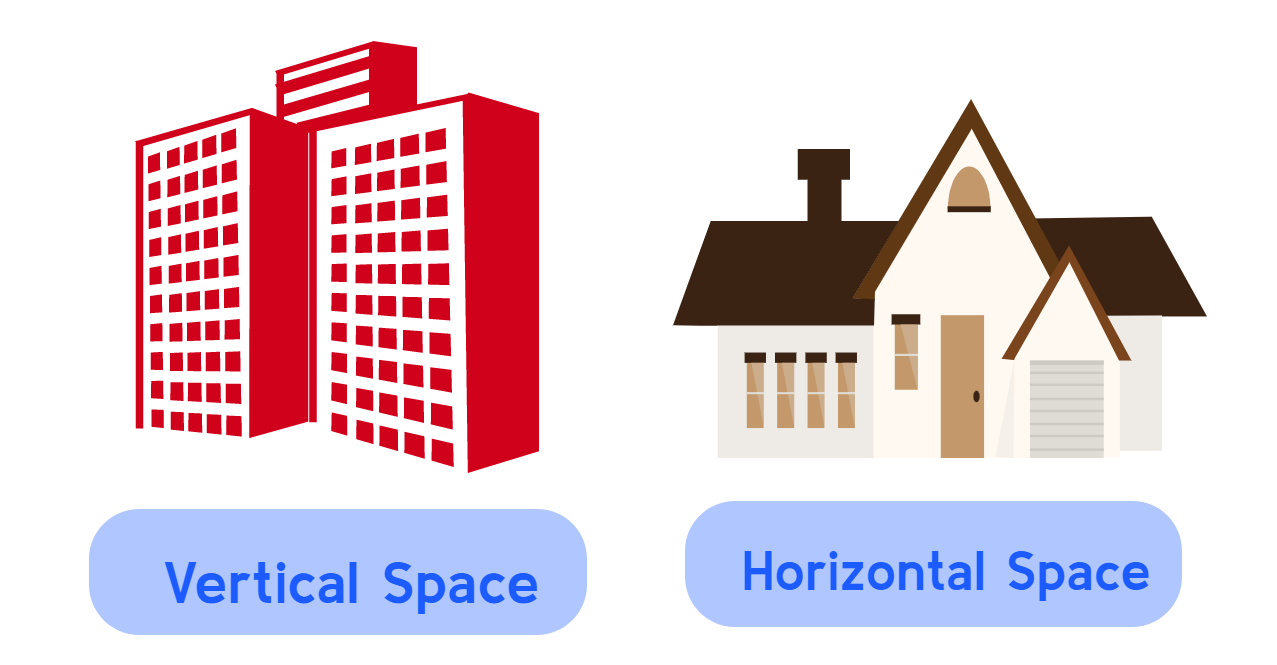
In a country like India, with population size of 1.3 Billion which is slated to cross 1.5 Billion in 2025, exploring the vertical limit of the house seems like the only choice for metros, because the earth has given us a limited and fixed space, we can not create horizontal space to accommodate all. So exploring vertical limit is the only viable option for mega and metro cities, and but this has also become fashionable in Ii and III-tier cities these days.
That is also the reason why I would call for smart villages in India and that is more sustainable than smart cities. I would also weigh upon the AQI(Air Quality Index) when I chose a city to settle. Unfortunately most of the cities are struggling with AQI, and that's not a good sign.
In gist, if I am to buy a House then definitely I would try to explore the horizontal space to possess a tangible asset in the form of a house where I would truly own a three dimensional asset.
Now let's have a look at the prevailing trend in India & worldwide and have a brief outlook on renting vis-a-vis buying a house.
Wow, surprisingly European countries are mostly rental societies and as we move to Asia, in China, the prevailing trend is exactly the opposite. China is significant, because it has also a huge population, so property ownership among 83% of the Chinese is a dominant phenomenon in China.
In India, the demand of renting society is a different story altogether: first, it has a huge population, second most of the people from sub-urban areas move to big cities and urban areas in search of a job and that makes the rental market much more demanding and it has a upward contour over the years, particularly if we take into account the last decade.
NCT Delhi, Karnataka, Maharastra, Tamilnadu, Andhra Pradesh, etc have a strong and defining trend of rental market for obvious reason. Metropolitan cities are basically the corporate hubs and create a lot of employment, therefore a prevailing trend one can notice in these cities. However, we dont have a such a defining trend in notified areas or small cities. So it all depends on the industrialization and employment generating hub.
Conclusion
Housing for all is indeed a basic need, but at the same we should also have long term approach, therefore sustainable homes can be the answer. Sustainable communities and sustainable cities will help the citizens become more responsible whenever they make a choice and/or make an investment therein, which will also contribute to the physical capital of a country.
Once we align our approach of "buying vs renting" around the theme of sustainable societies and cities, we stand taller to make a better choice.
Note- Unless otherwise stated, all the infographics are created by me using suitable tools/applications.
Posted Using LeoFinance Beta
